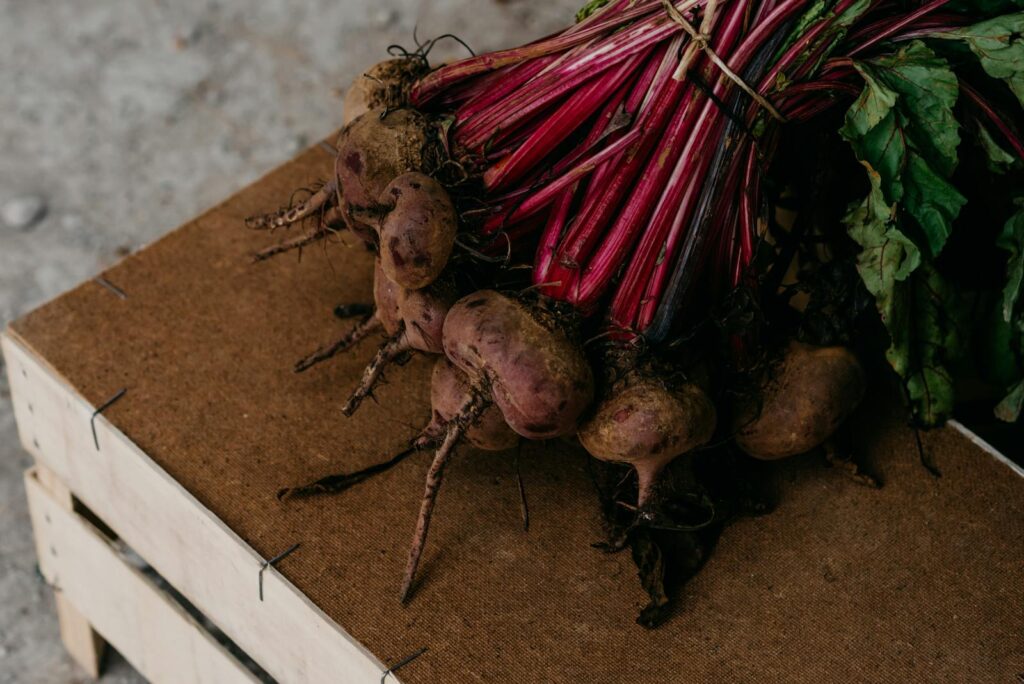Curious if beets pack a punch when it comes to iron? Ever found yourself wondering if this vibrant veggie could be your iron superhero? In this article, we’ll delve into the world of beets and their iron content.
Picture this: you’re looking to boost your iron levels naturally, and beets are on your radar. But are they really the iron-rich gem you’ve been searching for? Let’s uncover the truth together.
Get ready to discover the iron-rich secrets of beets and how they could potentially benefit your health. Stick around to learn all about this colorful root vegetable’s hidden iron treasures.
Exploring the Iron Content of Beets
Beets are not only vibrant and flavorful but also pack a nutritious punch. Did you know that beets are a source of iron?
- Iron Content: Beets contain about 1.1 mg of iron per cup of raw beets. While this may not seem like much, every bit adds up in supporting your overall iron intake.
- Absorption: The iron in beets is non-heme iron, which is not as easily absorbed by your body as heme iron found in animal products. Pairing beets with vitamin C-rich foods can enhance the absorption of non-heme iron.
- Health Benefits: Adequate iron intake is vital for oxygen transport in your body, helping prevent fatigue and promoting overall well-being.
Next time you enjoy a colorful beet salad or sip on a refreshing beet smoothie, remember that you’re not just treating your taste buds, but also nourishing your body with a boost of iron.
Nutritional Value of Beets
Beets are not only flavorful but also pack a nutritional punch. Here’s a look at some key nutritional aspects of these vibrant roots:
- Iron Content: Beets contain about 1.1 mg of iron per cup of raw beets, essential for oxygen transport in your body.
- Vitamin C Synergy: Pairing beets with vitamin C-rich foods can enhance the absorption of iron in beets.
- Fiber: One cup of beets provides about 3.4 grams of fiber, aiding digestion and promoting gut health.
- Folate: Beets are a good source of folate, crucial for cell division and growth.
Explore the nutritional benefits of incorporating beets into your diet to support your overall well-being.
Benefits of Iron in Beets
When it comes to the iron content in beets, they offer a significant nutrient boost. Iron is essential for oxygen transport in your body, helping to maintain healthy blood cells.
Including beets in your diet can be a delicious way to ensure you’re meeting your iron needs. Remember, pairing them with vitamin C-rich foods can further enhance the absorption of iron.
Curious about the exact amounts? Here’s a breakdown of the nutritional value in a cup of beets:
| Nutrient | Amount Per Cup |
|---|---|
| Iron | 1.1 mg |
| Fiber | 3.4 grams |
| Folate | Rich source |
Enjoy the benefits of iron in beets and boost your overall well-being with this nutritious root vegetable.
Incorporating Beets into Your Diet
So, you’re eager to start adding beets to your diet. Here are some ways to incorporate this nutrient-rich veggie into your meals:
- Salads: Toss beet slices or cubes into your favorite salads for a pop of color and a boost of iron.
- Smoothies: Blend beet with other fruits and veggies for a nutritious and vibrant smoothie.
- Roasted Beets: Roasting beets enhances their natural sweetness – a delicious side dish or salad topper.
- Beet Chips: Bake thinly sliced beets for a crunchy and healthy alternative to potato chips.
- Beet Hummus: Add cooked beets to hummus for a colorful and nutrient-packed dip.
- Beet Juice: Whip up a refreshing beet juice blend for a quick iron boost.
Myths and Truths: Beets and Iron Absorption
When it comes to beets and iron, there are several myths and truths that are worth exploring to understand their relationship better.
- Myth: Beets are solely responsible for iron deficiency.
- Truth: Beets are not the primary cause of iron deficiency. While beets contain iron, the body may still need additional sources to meet daily iron requirements.
- Myth: Beet iron is not easily absorbed by the body.
- Truth: The iron in beets is non-heme iron, which is not as easily absorbed as heme iron found in animal products. However, pairing beets with vitamin C-rich foods can enhance iron absorption.
- Myth: Beets alone can combat iron-deficiency anemia.
- Truth: While beets can contribute to your iron intake, it’s essential to maintain a diverse diet including other iron-rich foods for overall health.
Exploring these myths and truths can help you make informed choices about incorporating beets into your diet to optimize iron absorption and meet your nutritional needs effectively.
Conclusion
So, now you know that beets do contain iron, but they’re not the only solution for iron deficiency. Combining them with vitamin C-rich foods can help enhance iron absorption. Remember, a diverse diet with other iron-rich foods is key for your overall health. By understanding these facts, you can make better choices when it comes to including beets in your diet. Keep exploring different ways to optimize iron absorption and meet your nutritional needs effectively.
Frequently Asked Questions
Are beets a good source of iron for preventing deficiency?
While beets contain iron, they are not the sole solution for preventing iron deficiency. Additional iron sources are needed to meet daily requirements.
How does the iron in beets compare to that in animal products?
The non-heme iron in beets is not as easily absorbed as heme iron from animal products.
How can the absorption of iron from beets be enhanced?
Pairing beets with vitamin C-rich foods can enhance the absorption of iron from beets.
What is the overall importance of a diverse diet when it comes to iron intake?
A diverse diet that includes other iron-rich foods is important for overall health and meeting iron requirements effectively.

